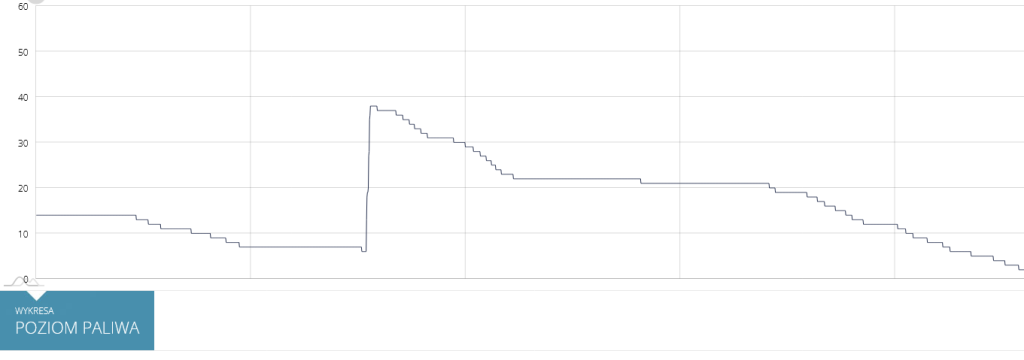The Key to Modern Fleet Management
GPS fuel control in effective fleet management is a key factor for every transport and logistics company that wants to stay competitive. With modern solutions such as GPS tracking and fuel monitoring systems, businesses can not only improve safety but also significantly reduce operating costs. In this article, we will explain why investing in GPS fuel control has become essential for growth, efficiency, and competitiveness in today’s market.
Many companies still wonder whether it is worth installing various types of fuel control devices or GPS location systems in their vehicles. The truth is that such an investment is not always cheap. Companies must equip their entire fleet with the right GPS hardware, ensure proper installation, and assign someone to read, process, and analyze the data from the receivers. On top of that, fleet managers need to constantly monitor what is happening with the fuel consumption and with the vehicles themselves. At first glance, this may seem like an additional burden, and some employees may feel uncomfortable knowing that every movement of the vehicle is being tracked.

Benefits of GPS fuel control
However, practice shows that the benefits of GPS fuel control far outweigh the concerns. Fraud and fuel theft have been a serious issue in the transport and logistics industry for years. Numerous cases of dishonest practices have led most companies to introduce GPS monitoring systems to protect their fleets and reduce losses. Today, it is well known that fuel control solutions help businesses eliminate abuse, optimize fuel usage, and increase transparency across the entire organization.
Poland, like many other European countries, has a strong transport and logistics sector. Large companies operating in cities such as Warsaw, Poznań, and Kraków often manage hundreds of vehicles, including trucks, vans, agricultural machines, and construction equipment. The larger the fleet, the greater the challenge of controlling operating costs – and fuel is one of the biggest expenses. By implementing GPS fuel control, these companies gain not only accurate data on consumption but also the ability to prevent misuse, optimize routes, and plan maintenance more effectively.
What makes this technology so effective is the fact that it provides real-time monitoring. Fleet managers can immediately detect irregularities, such as sudden drops in fuel levels, unauthorized vehicle use, or deviations from planned routes. This allows quick action and prevents bigger losses. Additionally, GPS data can be integrated with other fleet management systems, giving companies a complete overview of costs, driver behavior, and vehicle performance.
While GPS devices and software require an initial investment, they quickly pay for themselves through savings on fuel, reduced downtime, and lower maintenance costs. For many businesses, the return on investment comes within just a few months. Furthermore, introducing such systems encourages drivers to act more responsibly, knowing that fuel usage and routes are constantly monitored.
It is also worth mentioning that GPS fuel control is not limited to large enterprises. More and more small and medium-sized companies are also beginning to use these solutions. Whether it is a delivery business operating within a single city, a construction company managing a fleet of excavators and bulldozers, or a farm with agricultural machinery – every organization can benefit from improved transparency and efficiency.
In conclusion, GPS fuel control has become one of the most effective methods of reducing transportation costs and increasing savings in fleet management. Although the initial costs and the need for constant monitoring may raise concerns, the advantages clearly outweigh the drawbacks. The system not only minimizes the risk of fraud and fuel theft but also helps optimize routes, improve safety, and strengthen the competitiveness of companies operating in the demanding transport and logistics sector.
CALL 576 006 992 to find out more.
See fuel control on the CAN bus: więcej…
Sample fuel control report – in our system fuel is monitored 24 hours a day.

